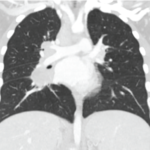Step therapy (or fail first) policies introduce significant barriers to access to effective treatments for patients with rheumatic diseases. They also impose significant administrative and cost burdens on providers and practices. The ACR and ARP are advocating state governments, Congress and regulatory agencies limit the impact of these policies on access to care by creating…







